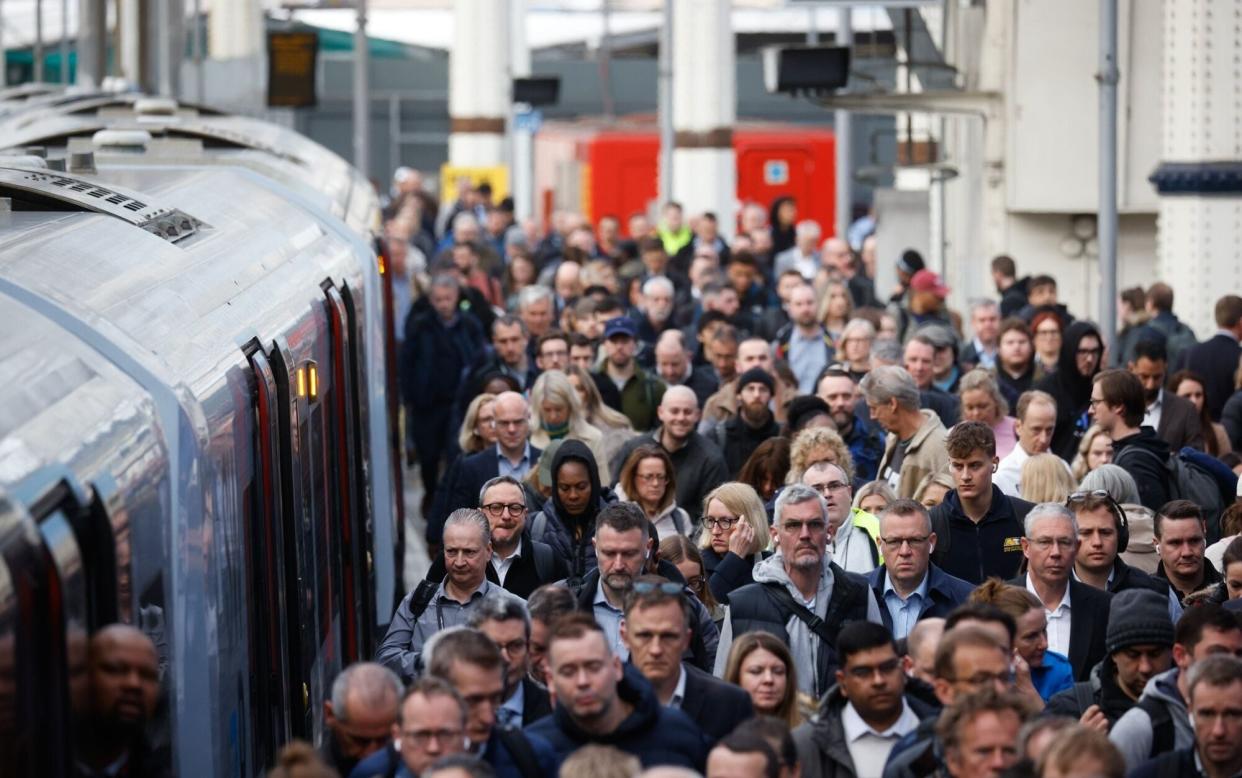We lived through British Rail. Nationalisation is not the answer

No one, not customers, taxpayers, politicians, nor the train companies themselves, think the current situation on the railway is satisfactory.
Radical change is needed, and the strikes need resolving, but nationalising our railways and pitting them in a battle for scarce public resources against schools, hospitals, and defence, is folly. Yet this is exactly what Labour intends to do.
Politicians instead need to be pragmatic and focus on what works.
We’re long enough in the tooth to remember that passenger journeys declined by 33pc under British Rail, a trend that continued until the mid-1990s when new privatised train companies drove a doubling of passenger numbers, increased services and invested billions into new trains.
What’s more, privatisation shored up the industry’s finances, turning an operating deficit into a surplus, something that the Treasury would welcome from today’s railway.
Objectively, privatisation in the two decades prior to the pandemic was a relative success. However, Covid saw that successful, if not creaking, system totally upended.
It is vastly underappreciated that our railways are already effectively nationalised. During the pandemic, private sector train companies were brought onto temporary Whitehall contracts to keep trains running when people were told to stay home.
Bringing operators into the public sector made sense during a crisis, but now revenues have stalled below pre-pandemic levels (adjusted for inflation and not including the Elizabeth line), and the taxpayer is picking up the tab for these losses.
Between 2020-2023, the Government spent £23bn to plug a black hole created by a drop in ticket sales. In contrast, between 2009-2019 train companies returned around £3bn to the taxpayer. This is financially unsustainable, and any future government would need to reduce ever increasing amounts of taxpayers’ money subsidising operations.
Train companies are now akin to other public sector contractors, paid a fixed fee by the Government to put on a service.
Incentives to run a good service and grow revenues have been removed. Labour says that removing the fee operators are paid – roughly £120m annually – will create savings for the taxpayer. But the reality is that that amount is not enough to deliver cheaper fares or resolve the ASLEF strike, so what actually is the point of doing it?
It seems odd for Labour to recognise the benefits of private sector involvement in rail freight, open-access, ticketing, train manufacturing, and rolling stock leasing, but to then heap all the blame on the failings of the current system on contracted operators.
Change is needed and while advocates of nationalisation are well intentioned and want to see the railway grow, they overlook the evidence of what has worked and what hasn’t.
We’re not suggesting returning to the prior franchising system. Few are. But it is possible to have the best of both worlds with a strategic guiding mind, like Great British Railways (GBR), providing joined-up thinking and ensuring that someone is overseeing the railway in the public interest. This can be set-up while still harnessing the private sector’s track record of investment and innovation.
In many metropolitan areas, this model of public-private partnership is already working well. Whether that’s in London on the Overground, in Liverpool on Merseyrail, or in Manchester with the Bee Network buses, all have public control, but private operators successfully run the service.
There’s space for Labour to be more pragmatic: the public doesn’t care who runs the trains, so long as they get a good service.
While a public-private concession works in commuter markets, on longer distance journeys we need to inject some competition into our railways to attract passengers back. It is positive, therefore, that Labour has recognised the benefits that open-access operators like Lumo, Hull Trains and Grand Central bring.
These train companies are off the Government’s balance sheet and thus commercially liberated. But it is somewhat ironic that Labour, while conceding the advantages these entrepreneurial operators deliver, wishes to remove incentives entirely for contracted operators by nationalising them.
While open access competition is limited to the East Coast Mainline in Britain, on the Continent, European countries are breaking up their state monopolies and allowing rival train companies to enter the market, leading to more services, lower fares, and reduced subsidies.
Spain’s socialist former rail minister, Raquel Sanchez, has praised competition for helping the administration improve mobility and tackle climate change. We need this government, and any future government, to better harness open access along with contracted train companies to create a thriving railway.
It’s easy to forget that rail does not just move people. Rail freight companies move goods right across our country, removing lorries from our roads – up to129 HGVs per freight train, in fact.
The sector contributes £2.5bn to the British economy every year, and the vast majority of the economic benefits accrue outside of London and the South East. All parties must show clear commitments to keeping rail freight in the private sector, and set out plans to create more track capacity which will allow rail freight to grow and help unlock further investment.
We lived through British Rail. A monolithic body controlling everything may be attractive to some, but the evidence suggests it would fail.
Most parliamentarians agree rail is a good thing, drawing investment into the regions, freeing up our roads, and connecting communities to opportunities. How we get there is where views differ. It’s time to put aside outdated public versus private arguments and focus on what works – a mixed economy railway that reduces subsidies and drives up passenger numbers.
Lord Berkeley (Labour) and Martin Vickers MP (Conservative) are co-chairs of the APPG for rail


